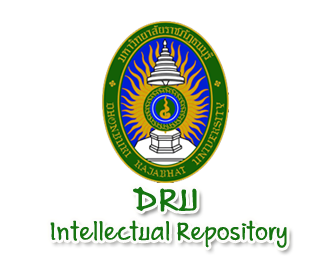Please use this identifier to cite or link to this item:
http://hdl.handle.net/123456789/1642| Title: | Carbon Footprint Analysis and the Development of Low Carbon Society Model of Community: A Case Study of Pasicharoen Districts, Bangkok |
| Authors: | Ketkaew, Thitima |
| Keywords: | Carbon Footprint Carbon Footprint Analysis Low Carbon Society |
| Issue Date: | 2018 |
| Publisher: | Chiang Rai Rajabhat University |
| Citation: | International Conference Proceedings “ASIAN Community Knowledge Networks for the Economy, Society, Culture and Environmental Stability” |
| Abstract: | The objectives of this research were to study the quantity and source of carbon footprints in Phasi Charoen District and to develop of low-carbon society model for Phasi Charoen District. The area of research is Phasi Charoen district. The data collection was conducted by query by questionnair for assessing quantity of carbon footprints in community. Brainstorming Meeting for to develop of low-carbon society model. The results are shown that the quantity and source of the carbon footprints from using electric appliances, traveling, and consumption. The three communities were different that Klong-ladpachee community was carbon footprints from the electricity use in homes activity average of 0.95 tonnes of carbon dioxide equivalent per year, Punbumpen community was carbon footprints from travels and recreation average of 0.90 tonnes of carbon dioxide equivalent per year and Klong Ta Ban community was carbon footprints from consumption average of 1.10 tonnes of carbon dioxide equivalent per year. The low-carbon society model develop of community result that Klong-ladpachee community has event provides knowledge about the differences and use of energy saving by LED lamps and combined with the knowledge Under Events "Change the LED lamp Change to the world" and answer questions after the transfer of knowledge to the community. Punbumpen community has event with the activity of the community's activities Workshop is bringing the waste to be processed including the houses in the community participating by planting vegetables to eat fertilizers from organic waste composting in the community. Klong Ta Ban community has event cloth bags for shopping and knowledge about green product. The activities of low-carbon society model get the community aware of the importance of behavior change to reduce carbon dioxide emissions. |
| URI: | https://cms.dru.ac.th/jspui/handle/123456789/1642 |
| ISBN: | 978-616-7920-73-3 |
| Appears in Collections: | Article Other University บทความมหาวิทยาลัยอื่น |
Files in This Item:
| File | Description | Size | Format | |
|---|---|---|---|---|
| Carbon Footprint Analysis and the Development of Low Carbon Society Model of Community: A Case Study of Pasicharoen Districts, Bangkok.pdf | บทความ | 744.48 kB | Adobe PDF | View/Open |
Items in DSpace are protected by copyright, with all rights reserved, unless otherwise indicated.
